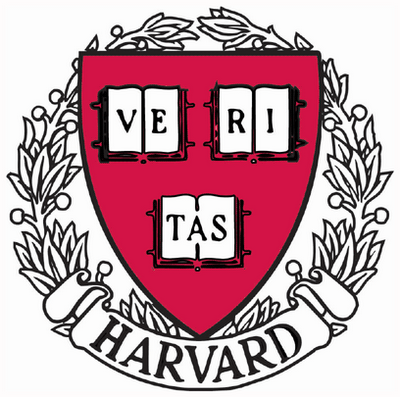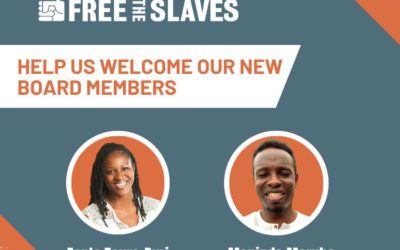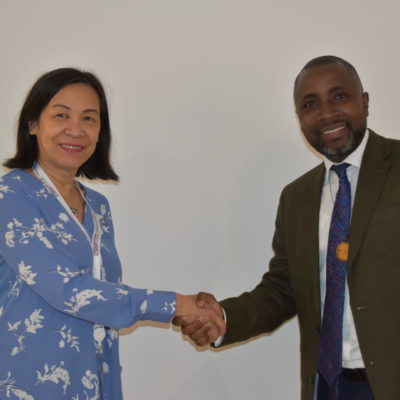Editor’s note: Members of the Free the Slaves Harvard college chapter saw that even though human trafficking is the fastest growing criminal enterprise in the world, it is still not common knowledge that slavery exists today, in virtually country in the world. So they decided to do what they could to fill in this information gap, and developed an undergraduate course on modern day slavery. This coming Spring, the course, titled “Slavery and Trafficking in the Modern World” will become Harvard’s first ever undergraduate General Education course on modern salvery. Free the Slaves’ Harvard college chapter member Madison A. Greer writes, below, about how she and her colleagues created this ground breaking course:
 “Modern-day slavery” is an oxymoron to many people today. When faced with the statistics that there are millions of slaves around the world, most people respond, “I thought slavery was abolished in the 1860s.” Human trafficking is the third largest illegal global industry, but it has only recently become a foremost subject in the media, leaving the greater population unaware of an injustice so prevalent in our world. In fact, the ignorance spawned by a lack of education surrounding human trafficking is one reason why so many people go unnoticed as domestic servants, forced labor slaves, and sex slaves, and therefore remain in physically and psychologically-damaging situations. It is this problem of limited awareness that Harvard College Free the Slaves aims to dispel through education, activism, and advocacy.
“Modern-day slavery” is an oxymoron to many people today. When faced with the statistics that there are millions of slaves around the world, most people respond, “I thought slavery was abolished in the 1860s.” Human trafficking is the third largest illegal global industry, but it has only recently become a foremost subject in the media, leaving the greater population unaware of an injustice so prevalent in our world. In fact, the ignorance spawned by a lack of education surrounding human trafficking is one reason why so many people go unnoticed as domestic servants, forced labor slaves, and sex slaves, and therefore remain in physically and psychologically-damaging situations. It is this problem of limited awareness that Harvard College Free the Slaves aims to dispel through education, activism, and advocacy.
In 2008, Kelli Okuji and Anna Kamerow founded HCFTS as a college chapter of the national organization, Free the Slaves. Our mission (as spelled out by Kelli Okuji in our program proposal), is to “empower students with a nuanced understanding of the nature of modern-day slavery and human trafficking in order to encourage students to become engaged in the topic and to make informed choices in their efforts towards social justice.” By doing this we endeavor to raise up future leaders who will spur the movement forward as it continues to grow into a broader social justice movement and develop into a distinctive field of study.
Read More >>With these goals in mind, President Kelli Okuji came to HCFTS with a vision to promote academic awareness in the form of curriculum development. In 2009, Kelli, together with graduate student, Eric Goodwin, and undergraduates, Catherine Cook, Katie Doherty, Channing Dodson, Madison Greer, Christina McClintock, and Amanda Nguyen, set out to devise a cross-disciplinary course that would educate students on human trafficking and modern-day slavery. Over the course of several months, each member spent hundreds of hours finding reputable sources and compiling data in the areas of history, economics, public health, government, and social movements as they relate to modern-day slavery. Each member received advice from faculty advisors and experts in the field such as Ben Skinner, author of A Crime So Monstrous, and Dr. Timothy McCarthy, Director of the Human Rights and Social Movements Program at the Carr Center for Human Rights Policy at the Harvard Kennedy School. We then began piecing together a coherent curriculum that would be factually valid and discursive over a broad enough range of topics to promote in-depth discussion on modern-day slavery as a whole.
With curriculum in hand, we dove into the promotion process in order to make this dream a reality. For hours, we stood as a group around campus, asking every person who passed to sign our course petition. We then organized information sessions and met with leaders of Harvard College in order to ask for their support. At times, we questioned our efforts since what we were doing was unprecedented, and we had no established formula for success. However, our insecurities were laid aside when we met with President of Harvard University, Drew Faust, as well as Luis C. de Baca, President Obama’s Ambassador-at-Large to Monitor and Combat Trafficking in Persons. Both of these people, among others, championed our efforts and validated the need for academic awareness surrounding human trafficking.
With several petition signatures and letters of support, we sought a professor for the course. Several contacts and meetings later, Orlando Patterson, John Cowles Professor of Sociology, accepted the position. We were surprised at his acceptance since he had for years focused on historical slavery. He said that he had begun to sense a change in emphasis in the field of sociology from historical to modern-day slavery, and he was interested in exploring the topic further.
We at HCFTS are proud to say that our course has been formally accepted into the Harvard College General Education program under “Sociology of the World” and will be taught in the spring of 2011 as Sociology 122: Slavery and Trafficking in the Modern World. Our goal this year is to distribute this curriculum among other universities across the nation. We hope that it will not only educate, inspiring people to fight against this atrocity, but will also inspire further efforts so that the movement can expand and slavery can forever cease to exist.



